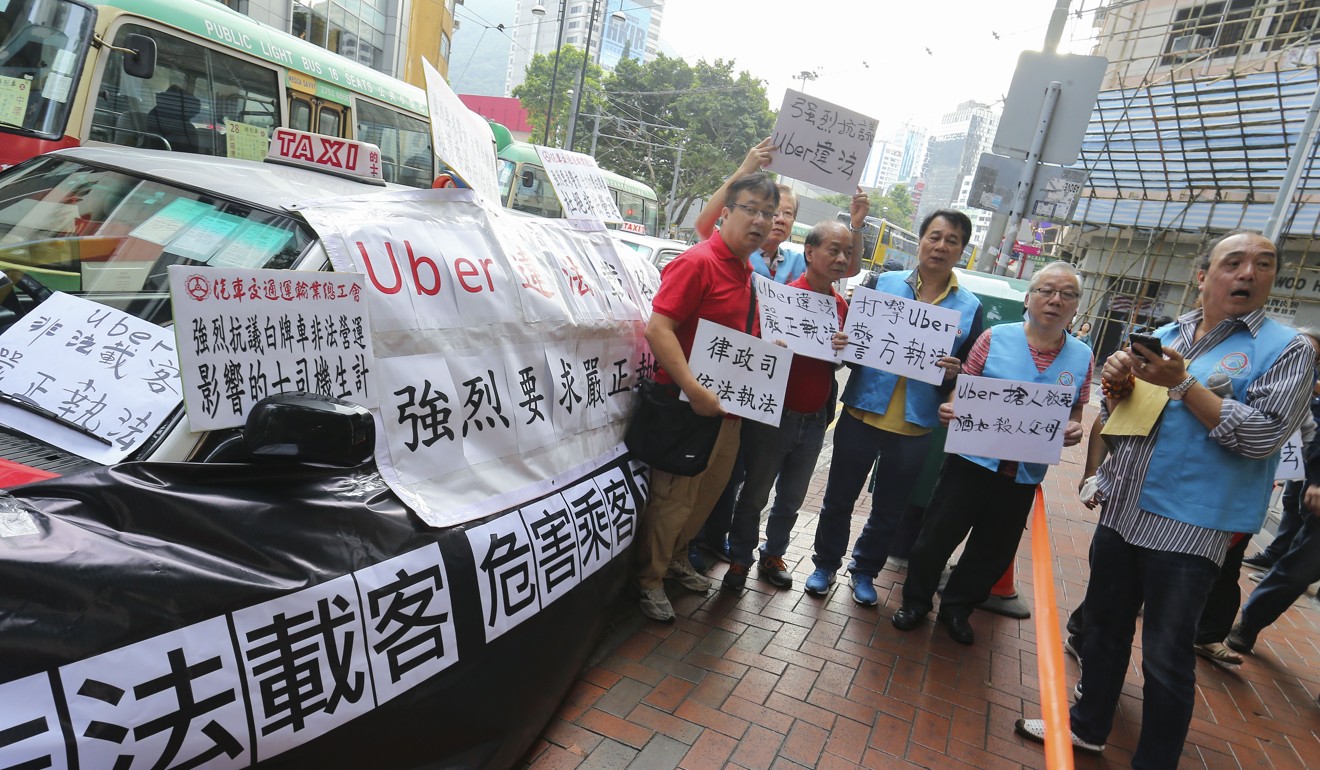
From Uber to e-payments and drones, can Hong Kong laws keep up with changing technology?
Bernard Chan says Hong Kong’s legal framework is lagging behind its smart city aspirations. The challenge will be crafting laws that protect the public while encouraging innovation
Behind the technology, we are basically talking about car owners moonlighting as unlicensed taxi drivers. This has always been illegal, as some operators do not have hire-car permits and proper insurance. Needless to say, the licensed taxi industry opposes competition and wants the authorities to clamp down.
Yet the public wants more choice and better quality hire-car services. The technology makes such services easy to offer – and it is difficult to ban in practice. At some stage, the government needs to accommodate ride hailing within a legal framework.
Hong Kong taxis may be willing to team up with ride-hailing giant Uber for ‘win-win situation’

Illegal, unlicensed and completely unregulated ... so why is Airbnb booming in Hong Kong?
Drones are perhaps a test case. With our unique urban environment, we could be at the cutting edge of some new technological applications
Explained: China’s path to electric car supremacy
The government also needs to keep up with new transport technology in the air. Within a few years, drones have gone from small remote-controlled toys to professional-quality flying cameras. Online videos show hobbyists in Hong Kong using drones to deliver chocolate bars and cans of beer, and the news media have found drones useful in news gathering. The technology raises concerns to do with privacy and safety. But it offers significant possible commercial and other applications like filmmaking, surveying and security, and transport. Manufacturers are already developing unmanned aircraft that could move large quantities of goods around urban environments.
Drone photographer Andy Yeung flies high for a new angle on Hong Kong
Drones hunt illegal use of public land in Hong Kong as officials criticised
A public engagement exercise is due to take place in the coming months. One issue is basic regulation of how drones can be used – for example, how high and how close to buildings they can fly. Then there is registration of drones. Many stakeholders favour a system where small recreational drones do not need to be registered. Bigger models and commercial users would be subject to more regulation – possibly including insurance and training requirements. While many people will see this from the hobbyists’ point of view, the real challenge is whether we can establish a framework that enables and encourages commercial applications for this new technology.
Drones are perhaps a test case. With our unique urban environment, we could be at the cutting edge of some new technological applications. The question is – can our laws make Hong Kong friendly to innovation and tech start-ups?
Bernard Chan is convenor of Hong Kong’s Executive Council

